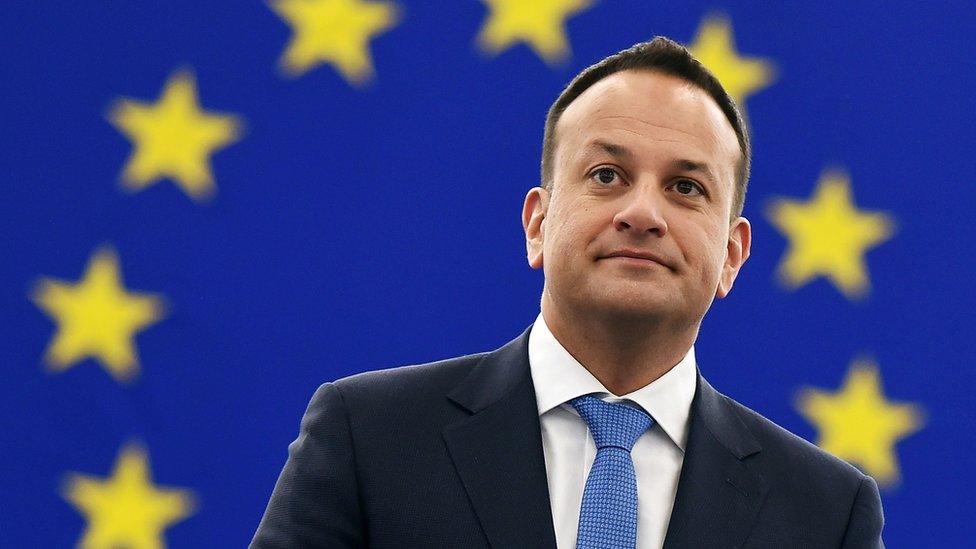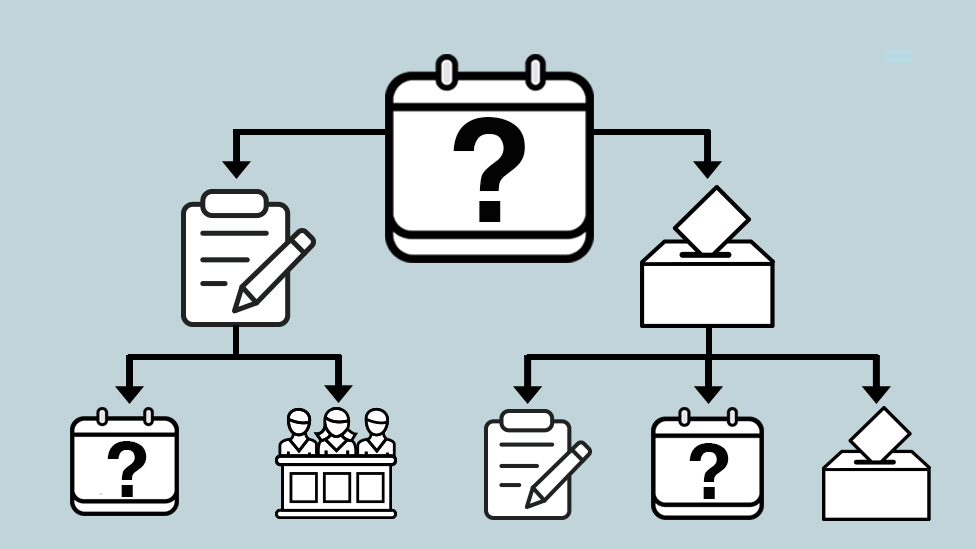Brexit: Tory resentment of Irish power within EU
- Published

A Tory grandee recently sidled up to me to express grave reservations about the Brexit process.
"We simply cannot allow the Irish to treat us like this," the former minister said about the negotiating tactics of the Taoiseach, Leo Varadkar.
The Conservative MP was exasperated that the Republic of Ireland (population: 4.8m) has been able to shape the EU negotiating stance that has put such pressure on the UK (population: 66m).
"This simply cannot stand," the one-time moderniser told me. "The Irish really should know their place."
The remarks explained why Conservatives from both sides of the Brexit divide are so troubled by the negotiations. They also explain why Theresa May might find that any concessions from the EU over the Northern Ireland backstop may fall short of the demands of Tory MPs.
Over the last few months Tory MPs have asked in private how the Irish Republic can believe its relationship with the EU trumps its relationship with the UK.
They cite economic reasons (the Irish Republic's strong trading links with the UK) and the historical relationship.
The MPs do of course acknowledge that left a troubled legacy.
One minister familiar with Anglo-Irish relations points out that these Tories should bear in mind one date and one word to explain both the Irish and the EU's approach.
The date is 1973: when the Irish Republic joined the EEC at the same time as the UK and Denmark.
That was the moment when Ireland took a giant political leap at the same time as the UK.
But it turned out to be arguably the biggest unilateral strategic move since Partition in the 1920s - a move that defined the modern Irish Republic as an independent state within Europe, with a wholly different approach to its larger neighbour.
The word to bear in mind, according to this minister, is "smalls".
That defines how the EU makes a point of looking out for the interests of smaller member states, as long as they tally with the wider interests of the EU.
Seeking assurances
And so the EU has stood by the Taoiseach after he insisted on a definitive and legally binding assurance that there would be no hard border in Ireland after Brexit.
That is how the EU ended up demanding that the UK sign up to the backstop - a customs union for Great Britain and the customs union for Northern Ireland - in the event of a failure to agree a new trade deal by the end of the transition period.
The Northern Ireland backstop is the single most troublesome element of the deal and forced Theresa May to postpone the meaningful vote.
The view of the European Research Group: cast out the backstop and most Brexiteers will swallow their doubts in other areas and accept the deal.
The view of more supportive voices: soften the backstop with some legal assurances and a significant number of middle ground Brexiteers will sign up to the deal.
And so Theresa May took to the skies on Monday night to seek what she called 'assurances' from the EU.
She knows that renegotiating the withdrawal agreement would be perilous, because the likes of France would table even more difficult demands.
One senior cabinet minister told me the prime minister is therefore looking for a legal codicil, in the form of a letter, to provide a legally binding commitment on the limits of the backstop.
One supportive MP said this would need to guarantee that the backstop could last no more than a year if it is triggered.
The EU is saying it wants to help but in a very limited way. Jean-Claude Juncker, the European Commission president, said before his meeting with the prime minister that the EU would provide "further clarifications and interpretations".
But there would be "no room whatsoever for renegotiation".
As the minister familiar with Anglo-Irish history said, the Irish Republic is standing by its decision of 1973 and the club is looking after its own.
And that is what alarms so many Tories: after centuries of troubled Anglo-Irish relations it is the smaller of the two islands which appears to be exercising greater power for the first time.
You can watch Newsnight on BBC 2 weekdays 22:30 or on iPlayer. Subscribe to the programme on YouTube, external or follow them on Twitter, external.
- Published13 July 2020

- Published19 November 2018
